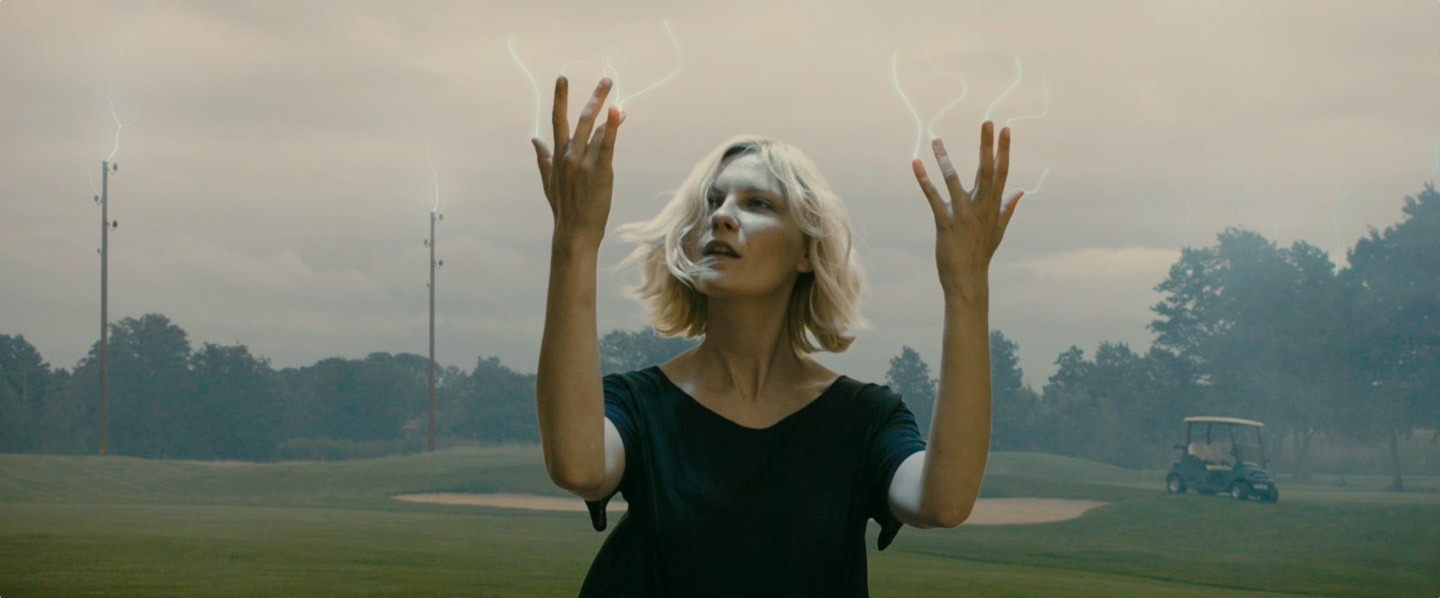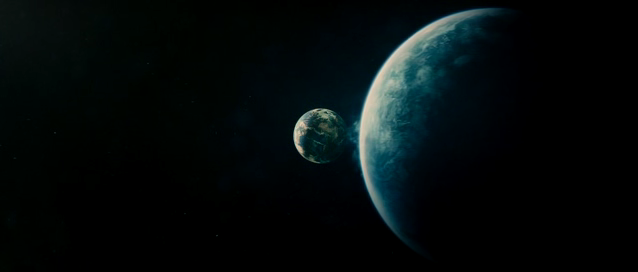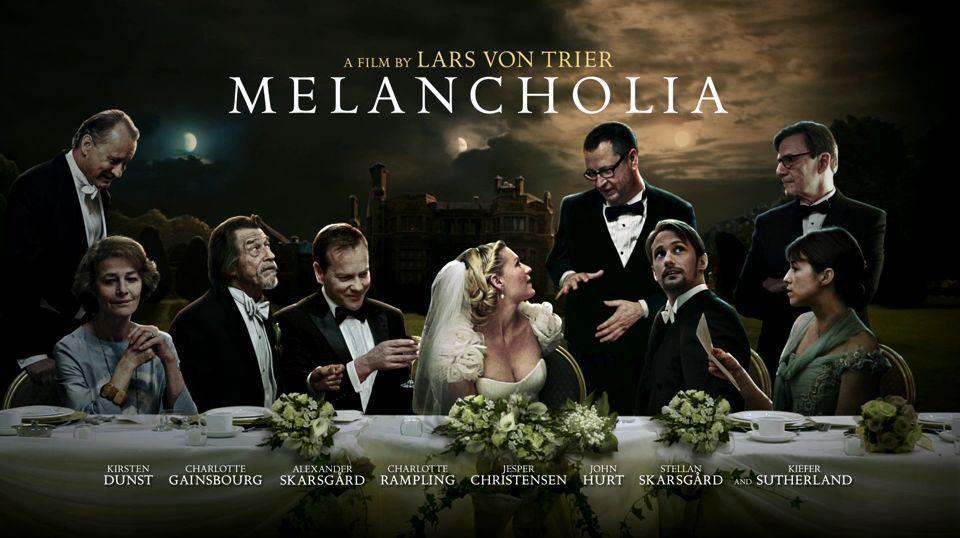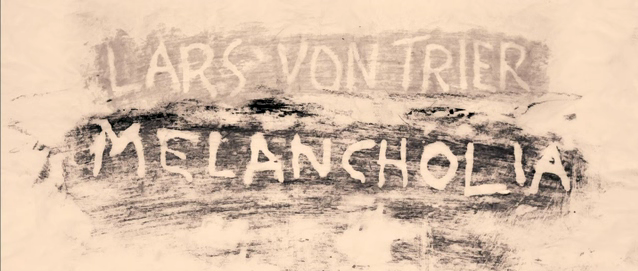 Hello, it’s currently 3:56 AM and I’ve just finished watching Melancholia. Actually, I have been to Europe on Screen screenings and I still have 2 drafts of film reviews and 2 other of something else, but I’d really rather write about this film than trying to come up with a perfect word to describe Antboy (watch it while you can, it’s quite enjoyable. Today is the last day of the screening now go!). Heck, I don’t even understood half of the words they say in Citizenfour without subtitles.
Hello, it’s currently 3:56 AM and I’ve just finished watching Melancholia. Actually, I have been to Europe on Screen screenings and I still have 2 drafts of film reviews and 2 other of something else, but I’d really rather write about this film than trying to come up with a perfect word to describe Antboy (watch it while you can, it’s quite enjoyable. Today is the last day of the screening now go!). Heck, I don’t even understood half of the words they say in Citizenfour without subtitles.
Okay, okay: Melancholia. The world ended twice that day; the first was when the chronically depressed Justine (Kirsten Dunst) couldn’t keep her world from falling apart at the day of her wedding. The second one occured when the planet Melancholia (the name cleverly chosen to represent the mental state of Justine) approaches the earth, leading to the end of life as we know it, and unwinding her sister Claire’s (Charlotte Gainsburg) order of life.
The thing that interested me was the role between Justine and Claire slowly reversing throughout the film. At the beginning, Claire was the practical, well-organized one who keeps everything in order. On the other hand, we see Justine descending into a state of mental paralysis, terrified with the prospect of real life. At the second act, Justine gradually steadied as the world annihilation comes near, while Claire couldn’t bear to see the world, and everything she knows of, destroyed.
The film started with a visually breathtaking seven-minute collection of surreal shots, accompanied by Richard Wagner’s overture of Tristan und Isolde. There are serene shots of space, the collision of Earth and Melancholia. Others are slow-motion shots from actual scenes of the film, which practically spoiled how Justine and Claire encounter the doomsday. You may think you could make out what happens next from the prelude, but is it really going to happen that way? The prelude also indicates that the film is going to be something existentially pretentious, but it’s actually far from it. The rest of the film seems like it was shot by a handheld camera. There are lots of noticeable shakes, unstable camera pannings, and zoom-ins–it was almost like a reality TV with good aesthetics. But I think that’s the aim, to keep it as real as possible, despite the planet itself was pretentiously called Melancholia.
Analyzing it from the destruction point of view, there isn’t much to talk about. A marriage ends before it began, and a natural disaster inevitably ends life on earth. They keep it real, there is no glorifying anything. It is as real as it’s going to get. What I see is Von Trier mocking the society that tries to find a meaning in everything, bordering the concept of nihilism. There was Justine’s mother who despised the idea of marriage, and at the end, the wedding ceremony really meant nothing to Justine. Also, approaching the end of the world we see Claire desperately trying to end the world in a nice ritual; drinking wine and singing songs, with her son and Justine, but Justine retorted, saying her idea was a piece of shit.
Melancholia is quite the complete package as a film. The actors were superb: Kirsten Dunst, which I’ve only known as Mary-Jane Watson and the girl on Eternal Sunshine, opened with her usual manic pixie dream girl portrayal, and succeeded to peel off her layers until we see the mentally vulnerable person she really is. Charlotte Gainsbourg is ultimately charming?? how???? and her transition from being the caring sister to a shipwreck is very smooth, I love it. The rest are equally talented: Alexander Skarsgard, Kiefer Sutherland, there’s even John Hurt (one can only hope this will turn into a Doctor Who crossover). Brilliant cinematography, lovely aesthetic. This film is known for the iconic last shot. But what really counts is the rich layers of subtext touching the subject of depression, relationships, and the human nature.
Scored with a chilling overture and set in a grandeur mansion, I’ve never thought this film would hit so close to home. I’ve never been legitimately diagnosed with depression, but I have a lot of moments where people exhausts me, and the thought of real life and all the social ties and responsibilities descends on me. I could relate with Justine, as she drives to the golf course and sit there staring at the sky. There are moments where everything burns and all you want is a repose. But not everyone can understand that. There are so much pressure from the society to be happy and live a normal life, and Justine tried her very best to fulfill it with having a job, marrying someone and faking smiles. But nothing really goes away.
Unlike the usual apocalyptic films, there is no resurrection. In the films that came into my mind: Interstellar, X-Men: Days of Future Past, and Armageddon, the world predictably doesn’t really end at the end of the film. After watching Melancholia, these optimistic, made-up endings seem silly. When the world ends, it ends. That’s just all to it; no creature from the fifth dimension that are going to save us, no mutants, no nothing, and there’s nothing we can do about it.
Why does the humanity take so much comfort from the concept of eternality? We’re very aware of how much the human race and its civilization has evolved from nothing to all of this, too much, in fact, mortality scares us to death. It’s so nice to think that everything we have now are going to last forever–or evolve into something even better, yes? Screw global warming, we’re all going to live in space stations with crazy tech stuff like the ones sci-fi films repeatedly tell us. Other planets would turn out to be sufficient for us to live and we would all be watching Earth explode from a spaceship while dancing to Britney Spears.
While that’s not the thing with Justine. To her, life on earth is evil. Depression is this weird in-between state, it makes you unable to perform simple tasks and daily routine, but it reveals the reality as it is. You know that there is going to be no pot of gold waiting for you at the end of the rainbow, thus nothingness is as good as it’s going to get. Oblivion is better than pain, and you’re ready to die. We can actually see Justine greeting death with open arms in the chilling shot where she blissfully lie naked at the river bank under the glow of Melancholia, while she won’t even undress for her husband (nor for the guy she made love to after that).
Melancholia ponders the concept of depression and the inevitability of extinction. That probably sounds like a gloomy film you wouldn’t want to watch, but it ended in a rather calming note. It left me feeling light-hearted and content, for some reason. Justine’s calm demeanor towards the eleventh hour resonated with me–it’s probably what I would act like if this whole thing happens. I find the idea of mortality comforting, that the misery of life will pass one day. What really clings to me was the first line where Melancholia as a planet was mentioned: John, trying to comfort Claire, said, “Melancholy will pass.”
I’m taking it as a message for people who are struggling with mental illnesses, or not being able to conform to the expectations of society. Nothing is set in stone. Melancholy will pass, and it will.



